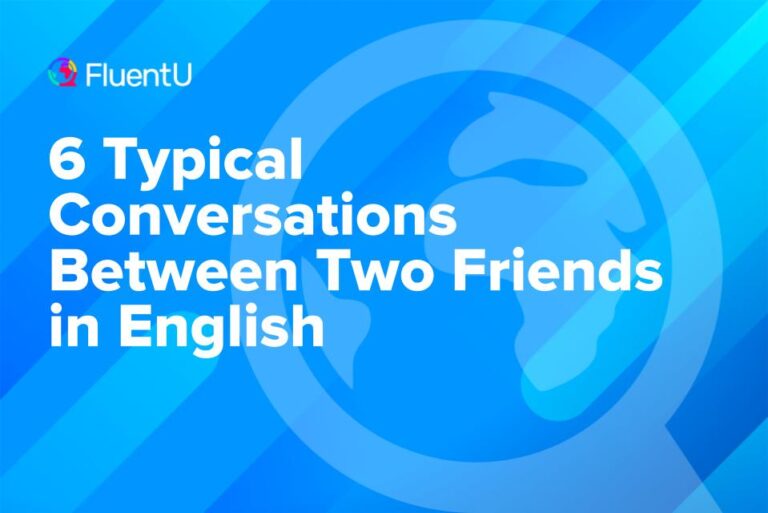English Modal Verbs

Everybody can use a little help now and then!
That goes for English verbs, too.
Sometimes, one verb alone just won’t cut it.
A modal verb can help the main verb do its job.
Modal verbs add more meaning to your sentences and let you express more complex ideas.
But what are modal verbs? How do you use them?
In this post, I’ll introduce you to the most important English modal verbs. I’ll show you how they work and how to use them correctly.
Download: This blog post is available as a convenient and portable PDF that you can take anywhere. Click here to get a copy. (Download)
What Are Modal Verbs?
Modal verbs are a type of “auxiliary verb,” also called a “helping verb” as we hinted above. That means they work alongside other verbs to give your sentence a new meaning.
For example, they can change the tense of your main verb, or indicate the possibility, permission or necessity for something to happen.
Common English modal verbs are:
- Can
- Could
- Will
- Would
- Should
- May
- Might
- Must
- Shall
When Do We Use English Modal Verbs?
Modal verbs are used very frequently in English, in a variety of contexts. Here are some of the main things modal verbs can be used to express:
- Necessity
- Possibility
- Permission
- Suggestions
- Ability
- Probability
Modal verbs are also often used to ask questions, especially Wh questions.
Once you understand how modal verbs work, it’ll help you speak English conversationally and in an academic setting.
All of the English Modal Verbs
Can
One of the most common uses for this modal verb is to express ability. In this case, can is another way of saying “be able to.”
I can play piano.
This also works if you’re asking a question. To ask about someone’s ability to do something, typically you would say: Can you _____?
Can you speak English?
In a similar way, can is also used sometimes as a way to offer help or to ask for permission.
I can watch your dog while you’re on vacation.
Can you please pass the butter?
You’ll also often hear this modal verb used to express the possibility of something happening.
Houses can flood in this region during rainstorms.
Could
Could expresses the past tense of can. Use it to express ability, but when talking about the past.
I could understand German when I was a kid.
Could you hear the birds chirping yesterday morning?
Could is sometimes used to express possibility, similar to can. However, unlike can, it’s used for less concrete possibilities and suggestions.
We could go to the park or we could go to the mall.
Will
Will is most commonly used to put an English sentence in the future tense. It indicates that something’s going to happen in the future.
I will wash my plates after I finish eating.
They will visit their grandmom next month.
In question form, will is used to ask if something’s going to happen in the future.
Will there be a storm tomorrow?
Will we have a quiz in English class?
Would
Would often talks about a habitual action in the past. That means an action repeated more than once, often by routine.
When I was a kid I would play with dolls every day.
Would can also show a willingness to do something in the future, often as part of the phrase “would like to…”
She would like to come to the party.
Would is used in a question to ask someone to do something. In this way, it’s similar to can—however, using would sounds more polite.
Would you please close the door?
Another very common usage of would is in conditionals—showing that something depends on something else. You may recognize the sentence structure would… if, as in the examples below:
She would go to the mall if you asked her.
He would become fluent in English if he practiced more often.
Finally, would often pairs up with the verb wish to express a desire.
I wish you would stop tapping your pencil.
Should
You’ll often hear should used to as a way to give or ask for advice or an opinion.
You should do your homework.
The governor should visit our neighborhood.
Should I meet you at your apartment?
In a similar way, it can be used to describe something necessary but perhaps not wanted.
She should comb her hair but she doesn’t want to.
Should is also used to show an expectation.
He should be back by 10 p.m.
The mall should be empty at this time of night.
May
May is another modal verb that’s similar to can, but more formal and polite. It’s used to express or ask for permission, and is often considered the most polite way to do so.
May I sit beside you?
You may pour yourself a cup of tea.
May is also often used to describe a possibility.
We may go downtown tonight.
Might
Like may, might can present a possibility. It’s not uncommon to hear may and might used interchangeably in this context, although may is slightly more formal.
He might get the job at the factory.
Might can also be used to suggest something. Within the phrase “might as well,” it indicates that there isn’t a good alternative.
I might as well go home since there’s no one else here.
Must
Must is a way of saying “have to” or “need to,” though it’s more formal than either of those.
You must finish your homework by Wednesday.
Must also expresses a strong suggestion.
You must see the Louvre while you’re in Paris!
Must can also be used as a guess, though only if you think that your guess is correct or if you have evidence to back up your guess.
He must be smart because he studied engineering.
Shall
Shall is a good modal verb to recognize, but it’s rarely used in everyday language because it feels so formal and polite to native English speakers. Its use is similar to will. You may see it most often in literature from past eras.
I shall call your mother if you misbehave.
We shall arrive at 5:00.
How to use Modal Verbs in Business English
Now we’ll cover some useful modal verb phrases you can use in different business situations.
Arranging a Meeting
Of course, there are many business situations where you might need to arrange a meeting. Modal verbs will be invaluable in setting up these meetings politely and efficiently.
Could we meet at _____?
I can meet at _____. / I can’t meet at _____.
Should I reserve the conference room?
Might we discuss it over lunch?
The meeting should take about 30 minutes.
Conducting an Online Meeting
In today’s business world, online meetings, video calls or conference calls are very common. If you work for a foreign company, it’s likely that you’ll have to participate in an online meeting at some point.
Modal verbs will help you keep the meeting on track in a clear and formal way.
Could you please mute your microphone when you’re not speaking?
Can everyone hear/see me?
Before we begin, we should each introduce ourselves.
Giving a Presentation
Giving presentations in any language can be nerve-wracking, but it can be especially overwhelming if you have to give a presentation in English. Fortunately, there are several modal verb phrases you can learn in business English to help you give your best presentation.
Might/may I have your attention, please?
Could you please save your questions until the end?
Today, I would like to discuss…
In conclusion, we must find a way to decrease costs/to increase profits/to find our niche/etc.
Speaking to an Employee as a Manager
If you’re a manager, one of the most common relationships you’ll have to navigate in the business world is between you and your employees. Here are some modal phrases that can help you speak with your employees in a respectful, yet commanding manner.
When can you give me the numbers from this quarter?
When will you be finished with the project?
Could you email me a detailed update?
We should plan to move forward with the merger.
Speaking to a Manager as an Employee
When you’re an employee at a company, you’ll most likely need to report to a manager or some other type of superior. It’s important to speak with respect and confidence when communicating with your boss. Here are some types of modal verb phrases that might be useful.
Could you please give me your thoughts on…?
I will finish _____ by _____.
I can find time for theses tasks today.
I would welcome your feedback on…
Speaking to Your Colleagues
Another important relationship in the workplace is the relationship between you and your colleagues. When you’re speaking with employees of a company that are at your same level, it’s nice to be able to talk both about business and more casually. Here are some modal phrases that you might try.
I might attend the conference. What about you?
I could use a day off. What about you?
Can/could I give you some advice?
Can/could I ask you a favor?
Speaking with a Client or Customer
Speaking with a client or customer is an important part of many jobs. It’s important to speak clearly, confidently and politely with them. If you often work directly with clients and customers, you may want to add some of these general business modal verb phrases to your vocabulary.
We would like to set up a face-to-face meeting.
May I offer you …?
It would be my pleasure to…
I might be able to…
Would you like to renew your account/subscription?
Could you give us a list of your requirements?
Taking a Phone Call
No matter what department you work in, making and receiving phone calls is probably a daily occurrence. It’s important to be able to successfully engage in a phone conversation at work. Here are some standard modal verb phrases you can use the next time your desk phone rings.
Could I ask who’s calling, please?
How may I help you?
Can I take a message?
Should I call back later?
Could you repeat that?
Hiring an Employee
One of the most common business interactions is hiring new employees.
Sometimes it can be challenging to interview potential employees, especially if you’re speaking in a second language such as English. Here are some useful phrases you’ll need during the hiring process.
Can/could you tell me more about your work experience?
You must arrive on time for the interview.
You should submit three references with your application.
Where to Practice Modal Verbs
As with many English grammar concepts, the trick to learning modal verbs is to practice them as much as you can!
- Ginger Software has some helpful exercises where you’ll choose the correct modal verb to put in a sentence.
- Mad Libs is a popular English word game that’ll expose you to modal verbs among many other types of English vocabulary.
- Journaling is a great technique to practice your English while incorporating modal verbs. Write about your plans for the upcoming day or week, like what you will do, what you should do, etc.
- FluentU is a language learning platform with a curated library of English videos.
FluentU takes authentic videos—like music videos, movie trailers, news and inspiring talks—and turns them into personalized language learning lessons.
You can try FluentU for free for 2 weeks. Check out the website or download the iOS app or Android app.
P.S. Click here to take advantage of our current sale! (Expires at the end of this month.)

This should help you express a range of ideas in English more fluently. Don’t forget to keep practicing!
Download: This blog post is available as a convenient and portable PDF that you can take anywhere. Click here to get a copy. (Download)
And One More Thing...
If you like learning English through movies and online media, you should also check out FluentU. FluentU lets you learn English from popular talk shows, catchy music videos and funny commercials, as you can see here:
The FluentU app and website makes it really easy to watch English videos. There are captions that are interactive. That means you can tap on any word to see an image, definition, and useful examples.
For example, when you tap on the word "searching," you see this:
Learn all the vocabulary in any video with quizzes. Swipe left or right to see more examples for the word you’re learning.

FluentU helps you learn fast with useful questions and multiple examples. Learn more.
The best part? FluentU remembers the vocabulary that you’re learning. It gives you extra practice with difficult words—and reminds you when it’s time to review what you’ve learned. You have a truly personalized experience.
Start using the FluentU website on your computer or tablet or, better yet, download the FluentU app from the iTunes or Google Play store. Click here to take advantage of our current sale! (Expires at the end of this month.)











